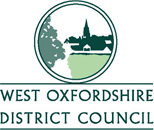
Message in a bottle: Council joins students in urgent call for action to save England’s rivers
On Wednesday 11 December, West Oxfordshire District Council (WODC) joined a group of students in delivering an urgent message to Minister Emma Hardy, Under-Secretary for the Department of Environment, Food, and Rural Affairs, addressing the critical issue of sewage pollution in England’s rivers.
The event, organised by Evenlode Catchment Partnership (ECP), took place in London and saw the local students from Rushmore Primary Eco School, Lower Clapton, present hundreds of postcards from themselves and communities across the Cotswolds. The messages on the cards and those placed in symbolic bottles – traditionally used by those stranded, unable to save themselves, to seek help – served as a powerful call for the government to take immediate action and respond to growing public pressure for effective solutions to tackle river pollution, restore the health of England’s waterways, and safeguard wildlife.
Cllr Lidia Arciszewska, Executive Member for Environment, who had the opportunity to speak at the event, said:
“Securing this meeting with Minister Hardy has been a vital opportunity to bring the urgent issue of sewage pollution to the forefront of government action. In the last year alone, Thames Water discharged raw sewage into West Oxfordshire’s rivers for more than 22,000 hours, that is on average about 1,300 hours from each of the Sewage Treatment Works. To put it into perspective 1,300 hours is equivalent to about two months.
“Thames Water has permits to discharge sewage from their storm overflow tanks only under exceptional circumstances. Sewage discharges are having a devastating effect on our rivers and wildlife. Once vibrant, life-filled rivers are now murky and lifeless, and families can no longer safely enjoy them.
“The Council is aware that much of West Oxfordshire's sewerage infrastructure is in a perilous state, with up to 40% of the flow in the sewer network coming from infiltration into the leaky, unmaintained sewer pipes. Many of the district's sewage treatment works (STW) are operating with insufficient capacity, leaving our rivers vulnerable to frequent pollution events.
“As a Council, we’ve worked hard to hold Thames Water to account and whilst some progress has been made, we need more decisive government action to address the infrastructure gaps and prevent further harm to our rivers.
“Together with the Evenlode Catchment Partnership, we are dedicated to working alongside our partners to push for sustainable solutions to restore the health of our rivers, protect wildlife, and ensure that the necessary improvements are made without delay.”
The ECP is a collaboration of over 30 organizations dedicated to restoring the River Evenlode’s ecological health. Hosted by Wild Oxfordshire, the partnership works across four key areas: Water Quality and Advocacy; Biodiversity, Habitat and Landscape; Natural Flood Management; and Education and Community Outreach.
Jennifer Lanham from Evenlode Catchment Partnership (ECP) said:
“Wednesday’s event highlighted the urgent need for action to protect our rivers, with children from Rushmore Primary Eco School delivering a powerful message to Minister Hardy. The postcards in the bottle, representing the distress of local communities, reflect the escalating crisis of river pollution. Records show that sewage discharges have tripled in our region since 2022, causing lasting damage to our waterways.
“The children’s message, ‘You have the power and the responsibility,’ is a reminder that protecting our rivers is not just an environmental issue, but a moral one. We hope the Minister will take decisive action to restore and protect our rivers for future generations.”
Through collaboration with local communities and partners, the ECP is leading efforts to secure cleaner rivers. The Council has been also met regularly with Thames Water to push for action on sewage pollution and as a result was able to secure the use of Grampian planning condition in applications for new housing developments in areas with insufficient infrastructure. This condition ensures that no new homes will be occupied until the necessary sewage treatment capacity is in place. Events such as Waterways Day and other outreach efforts continue to raise awareness of these critical issues and highlight our ongoing commitment to protecting our rivers and natural environment.
